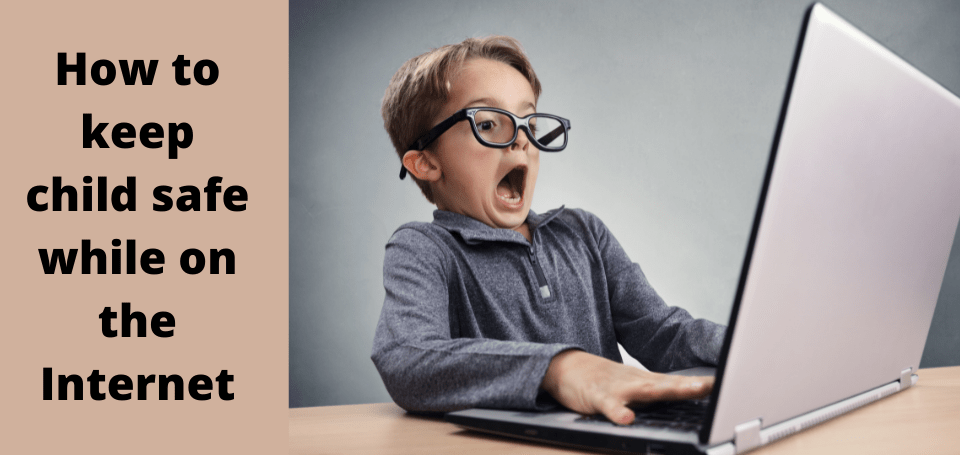As parents, we generally do all that we can to keep our children safe from getting them to ‘slip, slop, slap' before going out in the sun, to being cautious. However, how are you protecting them from bullies, predators, and improper online content?
Let's be honest, the internet is here to stay, and with 83% of teens going online at least three times a day, now is the right time, if you haven't already, to present some cyber safety know-how to your nurturing toolbox. Here are ten tips to kickstart your
- Talk openly with your child about their online activities.
When your child starts accessing the internet, talk with them about their activities, such as what they are reading, watching, and who they are speaking with online, and keep the discussion going as they grow older. Ask your child what sites they watch or apps they use. Talk to your child regarding what you think is proper, and advise them that this might be different for different parents and children.
Pay attention to your child and reach an agreement about what is right for your family. Recall that the time will come when they will access the internet outside the safety of their home, and you need them to be prepared for that.
It's important to teach them about their online reputation, as well, and how they should be cautious with regard to how they behave, interact with people, and address themselves in such a public forum. They must always remember that the web isn't private.
- Keep screens and devices where you can view them.
Always monitor your child's time online, especially young children. Keep the PC in a central spot in the home where it's easy to keep an eye on what your child is viewing online. For cell phones, you can set them to forget Wi-Fi passwords so your children can’t go online without you knowing. You can also try to make an agreement that there are no tablets, PCs, or gaming in the rooms.
For youngsters, you may also consider checking browser histories after your child has been online to see what websites they are viewing. This way of thinking can get harder as children become older and work out how to clear histories—which is more reason to open the lines of correspondence about internet usage at an early stage.
- Know your parental controls
Innocent searchers online can lead to not-really innocent outcomes, so it's wise to know how to use the parental controls and search limitations offered by internet browsers, network providers, and devices. For instance, the SafeSearch Filters feature on Google will block sites with explicit sexual content. Although not 100% precise, parental controls can help prevent your children from seeing and accessing more vicious or sexual content.
- Know your children’s online friends.
As grown-ups, we know that certain people online aren't who they say they are, but kids and youngsters can be alarmingly credulous about who they are talking with if they have not been taught to be cyber-wise since the beginning.
Ensure you become companions and contacts within your children's social media circles and make sure you monitor posts. Your kids might oppose it, but let them know that it is one of the conditions for you to allow them access.
- Be "share aware" to secure your privacy.
Assuming your child is a regular user of social networks, they should know about the risk of personal information or pictures being made public once they post them. While they will not completely understand the results of disclosing personal information online, you should teach them to be careful and cautious with regard to what they post and share. Encourage your children to ask themselves before posting anything or a photo if it's something they would give a stranger.
If your child is sharing photographs or posts online, ask your child to let you see what they are sharing or ask an older sibling to check any photographs before they're shared.
- Keep control of your family's digital footprint.
Each picture and personal detail that is posted and shared via social media and the internet adds to someone's digital foot print. The big risk with this is that once it is shared publicly, it can be used in multiple ways you may not expect or can't handle. You should also expect that whatever is put online is permanent. For this reason, children and youngsters need to be smart about protecting their pictures and data. The same goes for parents who consistently post photos of their children online.
Encourage your child to keep control of their digital footprint by sharing it only with people they know and trust. Rather than posting on the entire social media site, encourage them to be specific and use the privacy settings on the social media platforms they use.
- Teach your children to keep their location private.
Most apps, networks, and devices have geo-tagging features that make your whereabouts public and can lead someone directly to you. For obvious protection and safety reasons, these features should be switched off. Digital photographs also contain metadata, which may disclose more than you need to. A few social media platforms automatically hide or remove this information, but not all, so get your work done and know how much info you're sharing.
- Monitor online time.
The guidelines recommend that children between the ages of five and 17 should have something like two hours of screen time per day. Thus, it's essential to monitor your child's online time, especially young ones, to ensure they don't develop bad habits. Get your children to agree on a timeframe, say 30 minutes per session, and set a clock to go off-remember to make this a non-negotiable completion time. You should also turn off the home Wi-Fi at a set time every evening so everybody has some "break" from online. You can also have a try at making a few days "screen-free" in your home to encourage everybody to pursue other more active or potentially less technology-driven ways of engaging themselves.
- Be social network savvy.
Educate yourself on ways to be safe on social networks with the goal of offering the best guidance to your children. Sign up for the social networks and apps your kids are using and find out how to use the privacy settings and reporting systems. Talk about how they can stay protected on social networks, including conversing with a trusted person when they are stressed and being aware of what constitutes them both as a perpetrator and a victim.
If your child uses social media, be certain they know how to:
Report inappropriate and/or offensive posts.
Block somebody.
Keep information private.
- Show by example
Show by example and always model the type of positive online behavior you would like your kids to use. If they see you being careful and decent when you are online, they are bound to follow your example. Also, indeed, this includes restricting your own screen time.
Final words
Finally, you would rather not ingrain fear in your child or keep them from experiencing the numerous instructive, entertaining, social, and other advantages of the internet, but instead, give them the skills and knowledge they need to know how to use it and avoid the dangers.
Thanks
Vikas The Concept School | +91 7702900900 | www.vikasconcept.com















